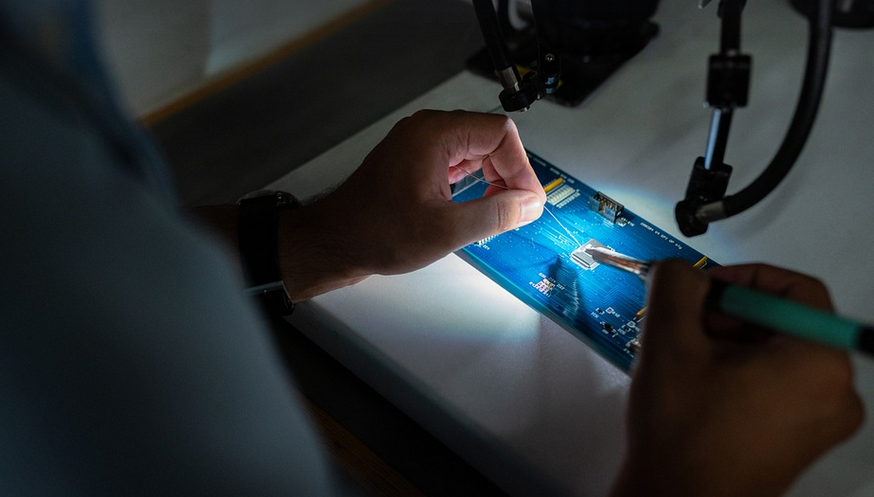That Annoying Chirp: Understanding Why Your Smoke Detector Might Be Misbehaving
Imagine this: you’re enjoying a movie night, the lights are dim, and the smell of popcorn fills the air. Suddenly, your smoke detector starts to chime – its piercing sound, like nails on a chalkboard, cuts through the quiet ambiance. It’s not just an annoyance; it’s a reason for concern.
You replace the battery, thinking surely that’s all it takes. But the chirping continues, leaving you wondering if there are hidden complexities at play. This isn’t just about the annoying sound – it’s about your safety, and understanding how to address this issue effectively.
Let’s dive into the world of smoke detectors, unraveling the mysteries behind their behavior when they seem determined to keep them chirping.
Why Does My Smoke Detector Keep Chirpng?
To understand how a smoke detector might be misbehaving despite a new battery, we need to explore some common culprits. These seemingly small issues can lead to unexpected behavior from your smoke alarm:
1. **Battery Type:** The most frequent culprits are often the batteries themselves. Not all batteries are created equal. The type of battery you use might not fit properly into your smoke detector, or they might be going bad. Check the manual for the recommended battery type and ensure it’s fresh.
2. **Battery Installation:** Even if the battery seems to fit right, a simple misalignment can lead to problems. Make sure you install the new battery with proper pressure, ensuring that the contacts are clean and snug. Incorrect installation can lead to intermittent chirps or even complete malfunction.
3. **Internal Fault:** Sometimes, the issue may stem from internal components of the smoke detector itself. It’s worth noting that age is a significant factor here. If your smoke detector is old, it could be experiencing wear and tear on its circuitry.
Troubleshooting Steps: A Step-by-Step Guide
If your smoke detector is still chirping despite the steps above, don’t panic! It’s time to get more hands-on. Here are a few troubleshooting steps that can help you identify and resolve the issue.
1. **Check for Battery Leaks:** Remove the battery from the unit and check if there’s any visible leaking. If you notice any signs of leakage, it could be due to a faulty battery or even corrosion. Replace the battery with a fresh one.
2. **Test the Batteries:** Remove the old batteries and test them with an appropriate tester (look for a device designed specifically for this purpose). This helps determine their level of functionality and ensure you replace them with fresh ones.
3. **Test the Circuit Board:** If all else fails, it may be time to test your circuit board. You’ll need special tools for this process, but if you have a multimeter, you can use it to check its functionality.
Professional Help: When to Seek Expert Assistance
While these troubleshooting steps can help you identify and resolve the issue, there are times when calling in professional help is essential. A qualified electrician or a fire safety specialist can provide expert assistance if your smoke detector continues to behave erratically after testing.
Remember, safety should be your top priority. When it comes to smoke detectors, it’s always better to err on the side of caution. If you have any doubts, seek professional help to ensure your home remains safe and secure.
Maintenance Matters: Keeping Your Smoke Detector in Top Shape
You’ve addressed the immediate issue, but how about preventing future chirps? Regular maintenance can go a long way in keeping your smoke detector working effectively. After all, prevention is always better than cure!
1. **Cleaning:** Dust and debris can clog the air vents of your smoke detector. Clean it regularly with a soft, dry cloth to ensure proper airflow.
2. **Testing:** Make it a habit to test your smoke detector at least twice a year, or more often if you have young children or live in a household where there are fire hazards (like cooking oil). Use the “test” button on the unit for this purpose.
3. **Battery Replacement:** Replace batteries every six months to ensure their optimal performance. Don’t wait until your smoke detector starts chirping – that’s a sure sign of trouble.
Conclusion: Prioritizing Your Safety
The seemingly innocent act of replacing the battery on your smoke detector might reveal deeper issues than you anticipated. While these problems can seem frustrating, understanding the basics of smoke detectors will empower you to tackle them effectively. Take preventative measures, learn how to maintain your smoke detector for optimal performance, and prioritize safety over convenience.
Remember, your smoke detector is an essential piece of home safety equipment. It acts as a guardian against fire, offering protection to you and your loved ones. With proper care and attention, it can continue to be a reliable tool in keeping your home safe year after year.


